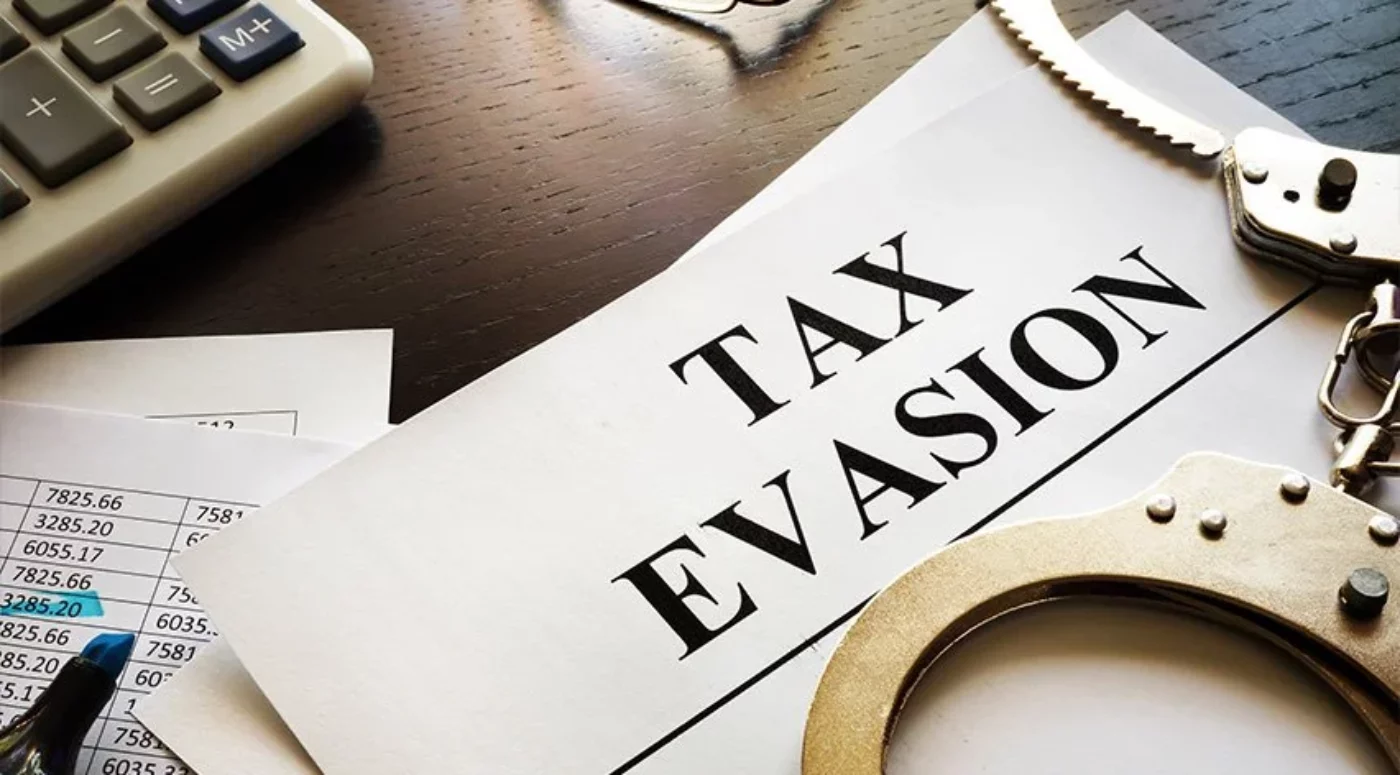

Being accused of tax evasion can be a deeply unsettling experience. You may be worried about your reputation, your finances, and the possibility of going to prison. The legal process can seem confusing and intimidating, especially if you have never faced criminal proceedings before. Many people in your position want to know what a suspended sentence is, whether it could apply to their case, and what steps they can take to improve their chances of a positive outcome. This article is here to guide you through the basics of tax evasion as an offence, the types of sentences you might face, how suspended sentences work, and what you can do to help your case. Our aim is to provide clear, practical information so you can make informed decisions and feel more confident about the road ahead.
What is tax evasion?
Tax evasion is a criminal offence under English law. It involves deliberately failing to pay the correct amount of tax, or actively taking steps to hide income, assets, or information from HM Revenue & Customs (HMRC). The main laws covering tax evasion are the Taxes Management Act 1970 and the Fraud Act 2006.
Tax evasion is not the same as making a mistake on your tax return. The key difference is dishonesty. For an act to be considered tax evasion, there must be an intention to deceive HMRC and avoid paying tax that is lawfully due. This can include failing to declare income, underreporting earnings, claiming false expenses, or hiding money in offshore accounts.
For example, if someone runs a business and deliberately does not declare all their cash sales, or if a landlord fails to report rental income, these could be cases of tax evasion. Similarly, submitting false documents or creating fake invoices to reduce your tax bill would also fall under this offence.
What are the usual sentences for tax evasion?
Tax evasion is treated very seriously by the courts, especially when large sums of money are involved or the conduct has gone on for a long time. The maximum sentence for tax evasion in the Crown Court is 7 years’ imprisonment and/or an unlimited fine. However, not every case results in a prison sentence.
Sentences for tax evasion can range from a financial penalty or community order for less serious cases, up to several years in prison for the most serious offences. The court will consider the amount of tax evaded, the length of time over which the offence took place, the level of planning, and whether there was any abuse of trust or position. In some cases, the court may decide that a suspended sentence is appropriate, particularly if the amount involved is lower, the offence was a one-off, or there are strong personal circumstances.
What is a suspended sentence and how does it work?
A suspended sentence is a custodial sentence that does not take effect immediately. Instead, the court imposes a prison sentence but “suspends” it for a set period, usually between six months and two years. During this time, you are allowed to remain in the community, provided you comply with certain conditions set by the court.
These conditions might include doing unpaid work, attending rehabilitation or educational programmes, or observing a curfew. If you comply with all the conditions and do not commit any further offences during the suspension period, you will not have to serve the prison sentence. However, if you breach the conditions or commit another offence, the court can activate the sentence, meaning you will have to go to prison for the original term, as well as face any new penalties.
A suspended sentence is not a “get out of jail free” card. It is a serious warning and a chance to prove that you can stay out of trouble.
Can tax evasion result in a suspended sentence?
Yes, it is possible for tax evasion to result in a suspended sentence, but this depends on the seriousness of the offence and your personal circumstances. The court will look at the facts of the case, including the amount of tax evaded, the period over which the offence took place, your role in the offence, and whether you have any previous convictions.
For example, if you have no previous convictions, the amount of tax evaded was relatively small, and you have shown genuine remorse, the court may consider suspending your sentence. On the other hand, if the tax evasion was for a large sum, involved sophisticated planning, or you have a history of similar offences, a suspended sentence is much less likely.
Know that a suspended sentence is only available if the court decides that the offence is serious enough to justify a prison sentence, but that there are exceptional reasons why immediate custody can be avoided.
What factors do courts consider when deciding on a suspended sentence for tax evasion?
When deciding whether to suspend a sentence for tax evasion, the court will consider a range of factors:
- The amount of tax evaded is a key consideration. Larger sums, or offences that have gone on for a long time, are more likely to result in immediate custody.
- The court will also look at the level of planning and sophistication involved. If the offence was carefully organised, involved false documents, or was part of a wider scheme, this will weigh against a suspended sentence. Abuse of trust, such as a professional or someone in a position of responsibility committing the offence, is also taken seriously.
- The impact on public finances and the wider community is another important factor. Tax evasion undermines the fairness of the tax system and can affect public services.
- Your personal circumstances will also be considered. If you have health problems, caring responsibilities, or other strong reasons, the court may take these into account.
- Remorse and efforts to make amends, such as repaying the tax or cooperating with HMRC, can also help your case.
- The court will also look at your likelihood of reoffending. If you can show that you have addressed the reasons behind the offence, such as financial difficulties or addiction, this can be a positive factor.
- Willingness to comply with the requirements of a suspended sentence, such as doing unpaid work or attending courses, is also important.
How serious does the offence have to be for a prison sentence for tax evasion?
Not every case of tax evasion leads to a prison sentence. The court will only impose immediate custody if the offence is so serious that no other sentence is appropriate. This usually means cases involving large sums of money, a high degree of planning, or repeated offending.
For example, if someone has evaded a significant amount of tax over several years, or has used false documents and offshore accounts to hide income, the court is likely to see this as so serious that only a prison sentence will do. On the other hand, if the amount involved was small, the offence was a one-off, and there are strong personal reasons, the court may consider alternatives such as a community order or a suspended sentence.
The court will also look at whether you have previous convictions for similar offences. Repeat offenders are much more likely to receive immediate custody. However, even for first-time offenders, the seriousness of the offence can tip the balance towards prison.
What can I do to improve my chances of getting a suspended sentence for tax evasion?
If you are facing a charge of tax evasion, there are practical steps you can take to improve your chances of receiving a suspended sentence. The most important is to seek expert legal advice as early as possible. A specialist criminal defence solicitor can help you understand the case against you, gather evidence in your favour, and present your personal circumstances in the best possible light.
Showing genuine remorse is also important. This means accepting responsibility for your actions, apologising, and showing that you understand the seriousness of the offence. If you can repay the tax or make arrangements to do so, this can be a powerful factor in your favour.
Providing evidence of positive personal circumstances can also help. This might include references from employers, proof of stable employment, or evidence of caring responsibilities. If you have underlying issues such as financial difficulties, addiction, or mental health problems, taking steps to address these, such as engaging with support services, can show the court that you are committed to change.
Finally, being willing to comply with the requirements of a suspended sentence, such as attending courses or doing unpaid work, can demonstrate to the court that you are taking the opportunity seriously.
Where to get more help
If you are facing a charge of tax evasion, arrange for legal advice as soon as possible. At Stuart Miller Solicitors, we have extensive experience in defending clients accused of tax evasion and other financial offences. We understand how stressful and confusing this time can be, and we are here to guide you through every step of the process. For a free, confidential consultation, contact us today and we will help you understand the next steps.
OUR COMMITMENTS TO YOU:
-
Responsive
A legal expert will consult you within 24 hours of making an enquiry.
-
Empathetic
We will always treat you with trust, understanding and respect.
-
Specialised
Your case will be handled by an expert who specialises in your type of offence.
-
Proactive
We will take early action to end proceedings as soon as it is practically and legally possible to do so.
-
Engaged
You will be kept updated on your case at all times. We will provide a named contact available to answer your questions.
-
Caring
We understand this is a difficult and stressful time for you and your family. Our team will support you every step of the way.
-
Tenacious
We will never give up on your case. We fight tirelessly to get you the best possible outcome.

